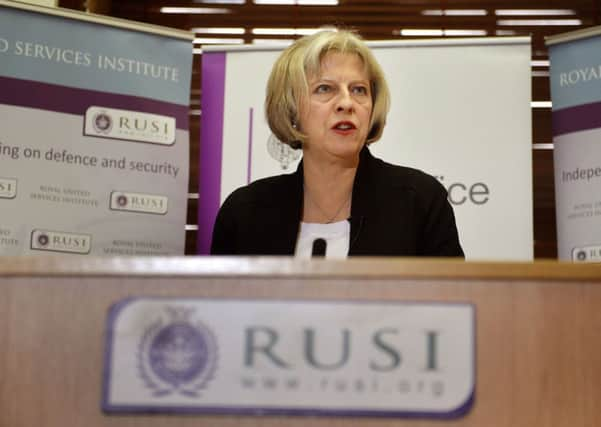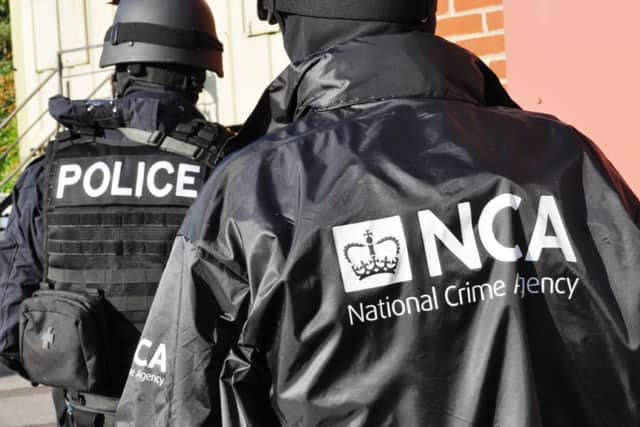Bid to stop terrorists using UK’s airfields and ports


Officials will give security briefings at ports, train stations and transport depots, all considered to be “attractive targets for terrorists”, on the second day of a nationwide week of awareness events.
They will also be speaking to aviation and maritime officials to raise their awareness about how to stop the region’s coastline, inland waterways and local airfields from being used to support terrorism.
Advertisement
Hide AdAdvertisement
Hide AdIt comes as a sweeping package of counter-terror measures was unveiled by the Government in a bid to bolster the UK’s defences amid warnings of a growing extremist threat that is set to last for several years.


Addressing the Royal United Services Institute in London, Home Secretary Theresa May said the threat from jihadists and other fanatics is “greater than it has ever been” as she revealed the range of powers included in a new Counter-terrorism and Security Bill.
She revealed 40 terrorist plots have been foiled since the London July 7 attacks more than seven years ago as she underlined the scale of the threat faced by the UK.
To help staff spot the signs of possible terrorist attacks, counter terrorism security advisors will be visiting transport hubs in Yorkshire and the North-East and providing training. Increased patrols will also be carried out at some locations.
Advertisement
Hide AdAdvertisement
Hide AdDetective Chief Superintendent Ian Wilson, head of the North East CTU, said: “While there is currently no specific intelligence of a terrorist attack nationally, or in the region, it is vital that we don’t become complacent.
“Experience tells us that our transport infrastructure is an attractive target for terrorists and we must do everything we can to prevent any attempt to threaten its safety.”
Visits to small airfields and waterways will be carried out as part of joint initiatives run by the North East Counter Terrorism Unit along with the National Crime Agency and UK Border Force.
Project Pegasus, which aims to tackle terrorist and criminal threats to the aviation scene, from private aerodomes and old bomber bases to small club strips and farmers’ fields.
Advertisement
Hide AdAdvertisement
Hide AdStaff are being told what to look out for to stop people evading UK border controls, being flown out of the country, or smuggling in contraband goods.
Last week, cocaine worth £5 million was seized by border officers from a light aircraft which landed at Breighton Aerodrome near Selby.
Project Kraken is a national campaign which aims to increase vigilance along the UK’s coastline and navigable inland waterways.
North Yorkshire Police alone covers some 40 miles of coastline between Staithes and Filey, including numerous small coastal harbours, beaches and marinas.
Advertisement
Hide AdAdvertisement
Hide AdCommuters can become “oblivious to their surroundings” and miss potential signs of extremist behaviour, transport policing chiefs have warned.
Paul Crowther, chief constable of the British Transport Police (BTP), said passengers using public transport should be alert to the threat of terrorism.
Mr Crowther highlighted the case of Andreas Pierides, who was given an 18-month suspended sentence after admitting taking eight explosive flares on to a plane at a UK airport. The alarm was raised when a passenger noticed he was researching explosives and had instructions about how to make a bomb.